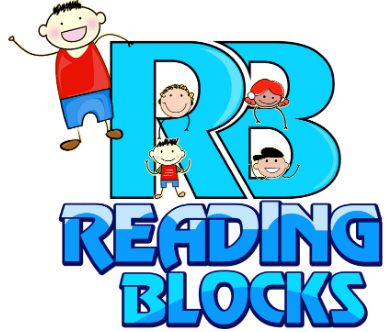“Change your thoughts and you change your destiny”
 Building Self Esteem In Children is Crucial to Future Success
Building Self Esteem In Children is Crucial to Future Success
Building self esteem in children is one of the most crucial components to address for the child to be successful in any area of his life, but especially in a reading program. The results in any reading program will increase if you have a willing participant who believes in himself and believes in his ability to learn.
The child has to believe completely that he can be successful or he will not be successful. The child has to be highly motivated to do his best or he will not do his best. Period.
Building self esteem in children who struggle to read can be easy or difficult to address. The level of difficulty depends on the age of the child and how long he has been struggling with learning to read. The self-esteem issue is easiest to address when you discover the learning difference early, for example in kindergarten or preschool. Usually a younger child is eager to learn and has a good opinion about his abilities. A child in this situation will usually also be easy to motivate and very willing to work hard in a reading program.
An older child, on the other hand, who has struggled with reading for a couple of years will very likely have an extremely poor opinion about his abilities regarding reading. He probably also has a strong aversion to anything involving reading. Kids might have made fun of him in school because of his reading skills. Teachers may have been lacking in either: recognizing the issue; knowledge of what to do about the issue; or possibly had poor dispositions in general. Just be aware that there may be a variety of negative experiences which your child has not shared with you but which are feeding into his poor attitude or low self-esteem.
This type of situation will be more difficult to rectify, but again it depends on the child’s personality and his unique situation. Whether your child is easy to motivate and has a high self-esteem or not is just a matter of degree, both scenarios can be successful.
First and most important, your child must KNOW he is smart and capable of doing anything he  chooses to do. He must KNOW it, not think it. This is important. A child who knows he is smart will accomplish a whole lot more than a child who thinks he is a loser or incapable of doing anything. There have been many studies done to prove this idea to be true.
chooses to do. He must KNOW it, not think it. This is important. A child who knows he is smart will accomplish a whole lot more than a child who thinks he is a loser or incapable of doing anything. There have been many studies done to prove this idea to be true.
Performance Matches Expectations
An experiment carried out in a school setting backed this assumption. The school called a group of teachers into a conference with the principal before the school year began. The person doing the experiment told the teachers that they were chosen to participate in this study because their past performance proved that they were the highest performing teachers in the school district. They were told this quality was needed for the success of this experiment.
Next, they were told they were going to receive the highest performing children in the district. They were also told that the administration of the district expected their classrooms to outperform every other classroom in the district since the highest performing teachers were teaching the students with the highest IQs.
As expected, these classrooms performed better than any of the other classrooms in the districts. At the end of the year, the teachers were again called into a conference. They were told that they performed better than any of the classrooms that were not a part of this study. They were also told that they were really chosen for this experiment randomly. Their names were pulled out of a hat filled with the names of every teacher in the district. The children in their classrooms were also chosen randomly from every child in the district. The only reason their classrooms achieved this level of success was because the teachers and the students knew that they were the best. They expected that they would achieve the highest levels.
The teacher’s and student’s approach to all obstacles during the year was based on their belief that they were the highest performing teachers and students in the district. They believed this to be true so they acted in this manner. They knew this to be true because the leaders in their district told them it was true. Nothing else mattered, except the fact that they knew they were the best. Their performance matched their expectation.
Performance Matches Expectations in the Home
 A second example of this paradigm is from Napolean Hill, the author of Think and Grow Rich. His son was born without ears. He had no known apparatus for hearing.
A second example of this paradigm is from Napolean Hill, the author of Think and Grow Rich. His son was born without ears. He had no known apparatus for hearing.
Hill was told that his son had a disability and should attend a special school for children with disabilities and also learn sign language to communicate. Napolean Hill refused to believe that his son had a disability.
He refused to allow his son, or anyone in his family for that matter, to believe that the boy had a disability. He said he strongly believed that for every challenge a person encountered in his life, there was an equal level of opportunity waiting to be exposed. He applied this belief to his sons’ situation.
Napolean Hill could have just listened to the “experts” and placed his son in special education. He could have lowered any expectations he had for his child compared to the expectations he had for his “normal” children. But he did not.
He fought the school district every year to have this child in a regular classroom. Every day he informed his son that not having ears held great blessings for him. He also prepared his son to expect great things from having this “advantage.” He did not say “disadvantage.”
His son did go on to live a very successful and fruitful life and his “disability” was in fact the key to his success. This was a direct result of the beliefs his father imstilled in him from his birth. His performance matched his expectation.
What a person believes to be true becomes his reality.
 A child who believes he is unsuccessful will become unsuccessful. But, change that belief and you will change that result. “Change your thoughts and you change your destiny”. In the big scheme of things, a reading difference is not a major issue, unless it goes unaddressed. Then it becomes a major influencing issue in a person’s life.
A child who believes he is unsuccessful will become unsuccessful. But, change that belief and you will change that result. “Change your thoughts and you change your destiny”. In the big scheme of things, a reading difference is not a major issue, unless it goes unaddressed. Then it becomes a major influencing issue in a person’s life.
One of the most important roles we have as parents is to support and encourage our children to reach their full potential, whatever level that may be. Parents need to continuously envelop their children with the understanding and belief that they are smart and capable and will accomplish great things
Hold the expectation yourself, and then transfer that expectation to your child. Continuously show your child that this is true by pointing out little things they do daily that prove this to be true. For example, you can point out to your child his amazing ability to tie shoelaces. You can inform him that he must be so smart because he tied his shoelaces earlier and better than anyone else. Or you can tell him that he is the best skater, or singer, or whatever skill that best applies to your child. The accomplishment does not have to be something big and important. You just make it big and important. Your child looks up to you and believes you. You can build him up in a thousand different ways every day.
 These little things will make a big improvement in your child’s self-esteem and consequently in all areas of your child’s life. Just remember, his performance will match his expectation. You need to build up and reinforce that expectation.
These little things will make a big improvement in your child’s self-esteem and consequently in all areas of your child’s life. Just remember, his performance will match his expectation. You need to build up and reinforce that expectation.
I know that if we give the idea of the performance matching the expectation more attention, in every area of our lives, we will surpass all of our previous achievements. We need to definitely attach this idea to our children with learning differences. Come to think of it, why do we call it a “reading disability”? It really is only a “difference” from the average way of learning, but not necessarily a disability. It is only a disability when we believe it is a disability and call it one. Now, let us apply this idea to the child who is having trouble learning to read.
Transfer A Positive Mental Attitude to Your Child
You should have a discussion with your child and tell him outright that you know he is smart. You have always recognized how smart and capable he was in the past and is at this time. Point out everything he is good at, no matter how small the ability might seem to you. You want to make him feel good about himself and some accomplishments he has made so far in his life.
After acknowledging everything that he is good at, approach the reading difficulty. Explain to him that you can see that he is having trouble learning to read and that just means that he learns differently. Help him to understand that this is an asset. His brain is “wired” differently so he will learn differently.
This gift will also enable him to access different areas of his brain and reach different levels of knowledge that “average” people  cannot reach. This is true. NASA hires a higher percentage of employees with dyslexia than without dyslexia. They look for this trait. They recognize this “disability” as a coveted asset. Your child must understand this and believe this to be true.
cannot reach. This is true. NASA hires a higher percentage of employees with dyslexia than without dyslexia. They look for this trait. They recognize this “disability” as a coveted asset. Your child must understand this and believe this to be true.
The positive mental attitude you bring to the table when dealing with the reading issue will make all the difference in the outcome. You want to transfer your positive mental attitude to your child. This means you need to cultivate one if you do not have one already.
Now that you discussed how smart your child is and how learning differently is an asset, you have prepared him mentally to approach the task of learning to read with a positive attitude.
Teaching your child to read at home is easy with the Reading Blocks program.
